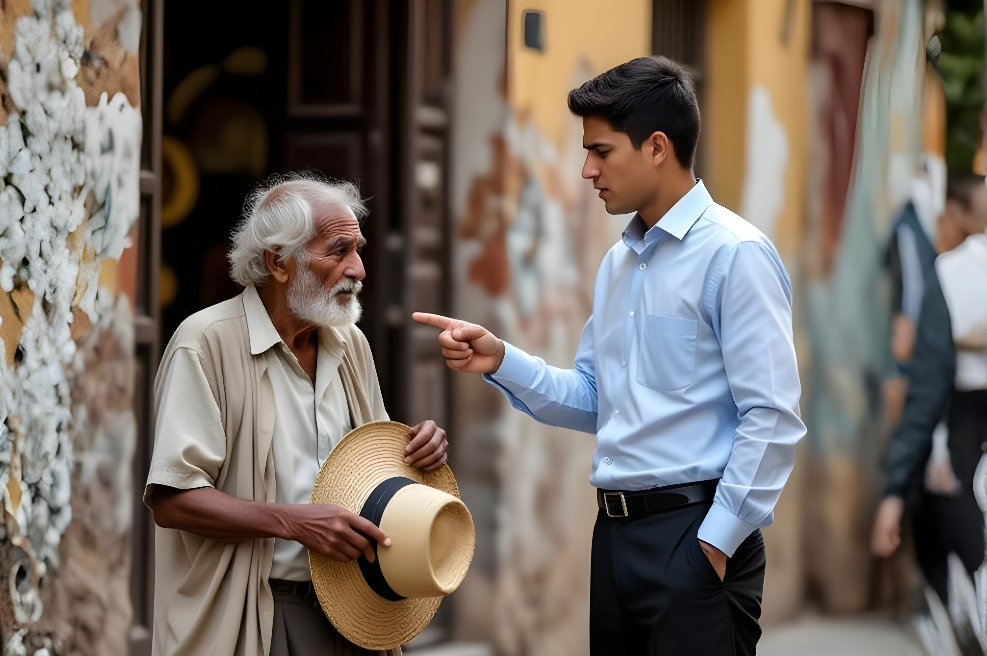When I received my college acceptance letter, all I held was hope and the determination to break free from poverty’s grip. Our family’s hardships were so visible that even neighbors noticed when meat appeared on our dining table.
My mother died when I was only ten years old, and my biological father had disappeared prior to her passing. The man who became my guardian was not related to me by blood; he was my mother’s longtime friend and a tricycle driver living in a cramped riverside room.
Despite facing his own difficulties, after my mother’s death, he stepped up to raise me. Throughout my education, he worked tirelessly, often borrowing money, to ensure I remained in school.
I vividly recall the moment I needed additional funds for an extra class but felt too embarrassed to ask. Later that evening, he quietly handed me some wrinkled bills that carried a faint scent of antiseptic, saying, “Today, your father donated blood. They gave me a small token. Take it, son.”
“Who would repeatedly donate blood just to support a child not their own? It was my father’s selfless act, known only to us.”
When I was accepted into a well-known university in Manila, he hugged me tightly, nearly in tears. “You’re strong, son,” he told me. “Work hard in your studies. I can’t support you forever, but you must escape this hardship.”
During my time at university, I juggled part-time jobs like tutoring and waiting tables to make ends meet. Even so, he continued sending a few hundred pesos monthly. Though I asked him to stop, he replied firmly, “It’s my money, and you deserve it.”
After graduation, my initial salary was ₱15,000. I immediately sent ₱5,000 back to him, but he gave it back, saying, “Save this. You’ll need it eventually. I’m old and don’t require much.”
As years passed, I advanced to become a director with a ₱100,000 monthly income. I asked him to live with me, but he declined, preferring his peaceful and simple lifestyle. I respected his wishes without insistence.
Then one afternoon, a frail and sun-worn figure appeared at my doorstep. Trembling, he took a seat on the sofa’s edge and whispered, “Son… I’m unwell. The doctor recommends surgery costing ₱60,000. I have no one else to turn to.”
Looking at him, memories flooded me: his countless sacrifices, restless nights worrying, and rainy mornings escorting me to school. Quietly, I told him, “I cannot and will not give you a single peso.”
He simply nodded, pain shining in his eyes but without protest, rising slowly as if turned away like a beggar.
Before he left, I took his hand, kneeled, and said, “Dad, you are my true father. There is no debt between us. You have given me everything; now it is my responsibility to care for you.”
He broke down in tears, and I held him tightly, tears flowing from both of us.
From that day onward, he became a part of our household. My wife welcomed him wholeheartedly, treating him as her own father. Although advanced in years, he still contributed around the home, and we often traveled together.
Key Insight: Some ask why I treat my adoptive father with such care when he once had little to give. My answer is always, he invested his blood and his youth to fund my education. Though not related by blood, he embodies fatherhood in every meaningful way.
- True debts cannot be settled with money alone.
- Gratitude is best expressed through genuine affection and devoted time.
Ultimately, this story is a reminder that the bonds we build through love, sacrifice, and care surpass biological ties. The debt of kindness can never be measured in currency but thrives in heartfelt reciprocity.
